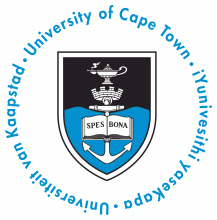The University of Urbino is located in a magnificent Renaissance city, in the Unesco World Heritage. The university grew out of the Collegio dei Dottori, which was already active in the middle of the 15th century and authorised to act as a legal consultative body and an appeal court. It started functioning as a university in 1506, under Pope Julius II. Nowadays, Urbino is a medium-sized university offering students and scholars a wide range of courses and research opportunities. The departments are mainly housed in buildings of outstanding architectural interest. Urbino can be considered a city and campus all in one, and the ancient city centre is on a human scale. Everything is within walking distance and there are numerous opportunities for meeting local people, teachers and students. The scientific laboratories are mostly located in a modern campus near the city. Some teaching courses are delivered in Pesaro (Oriental languages) and Fano (biotechnology). In order to strengthen quality in research and teaching, every department has appointed Quality Assurance Commissions. The University of Urbino is one of the four founding members of the Slovenian Based Euro-Mediterranean University (EMUNI), the flagship academic programme of the Union for the Mediterranean. Two of our master¡¯s courses have been awarded the EMUNI label for high quality and excellence in Euro-Mediterranean studies: intercultural business communication and environmental and engineering geology. The following activities co-ordinated at the University of Urbino have been approved as part of the Jean Monnet Project: a Jean Monnet chair in history and a Jean Monnet chair in European law; a European module in European law; a permanent course in European economic integration; and a permanent course in European economic policy. Within the framework of the VII FP, the University of Urbino is involved in 10 projects financed by the European Union with a total of almost €3 million.
- 65 : 35Student Ratio of Females to Males(1)
- 5%Percentage of International Students(1)
- 16,020Number of FTE Students(1)
- 39.3No. of students per staff(1)
- 25%Proportion of ISR Publications(1)
Physical sciences
- Chemistry
- Physics & Astronomy
- Geology, Environmental, Earth & Marine Sciences
- Mathematics & Statistics
Law
- Law
Computer science
- Computer Science
Social sciences
- Politics & International Studies (incl Development Studies)
- Communication & Media Studies
- Geography
- Sociology
Life sciences
- Biological Sciences
- Sport Science
Business & economics
- Accounting & Finance
- Economics & Econometrics
- Business & Management
Arts & humanities
- History, Philosophy & Theology
- Archaeology
- Languages, Literature & Linguistics
Psychology
- Psychology
Education
- Education










